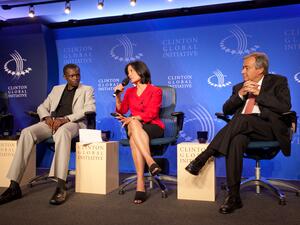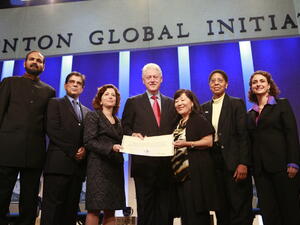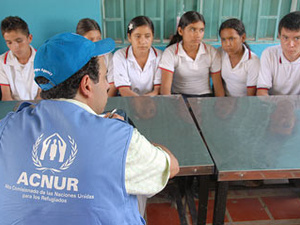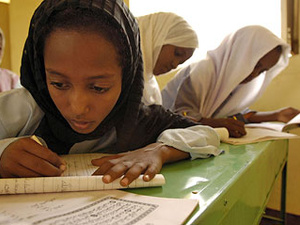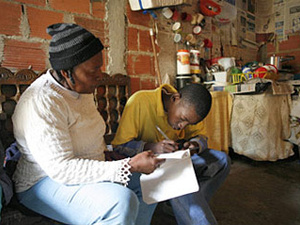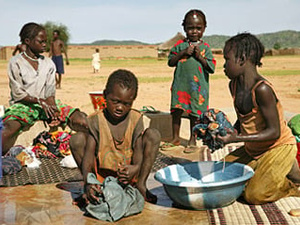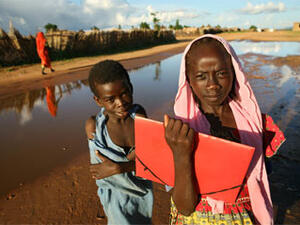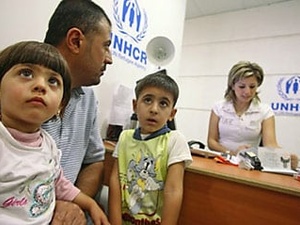Clinton Global Initiative: To Serve, with Love
Clinton Global Initiative: To Serve, with Love
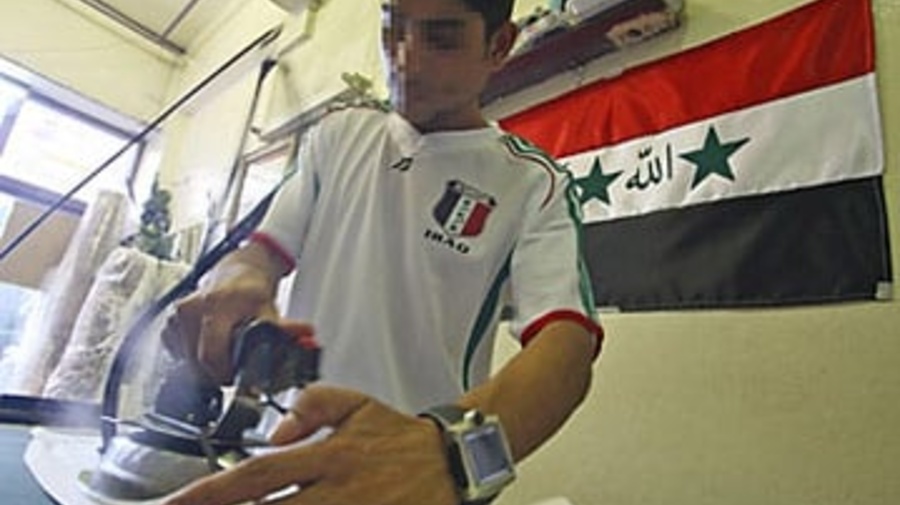
Karim, a recently-arrived 17-year-old Iraqi refugee, works long hours in a laundry to support his parents and large extended family.
DAMASCUS, Syria, September 21 (UNHCR) - High school teacher Shukri Ali should be lying on a beach enjoying his summer holidays with his family. But he cancelled those plans without a second thought to spend his month-long holiday in a cramped basement classroom, giving remedial education to Iraqi refugee children aiming to catch up enough to join Syrian classes.
Why would he volunteer for such a job? "I am Palestinian and I suffered before they did," he says simply. "I lived in a [refugee] camp, I lived in a tent and I know what it is like. I remember the misery."
Now 47, Shukri Ali was a refugee by birth, born to Palestinian parents who had fled to Syria in 1948. It distresses him to see that 60 years later, the region is still producing refugees.
The classroom where he teaches mathematics, physics and chemistry to Iraqi teens is part of a remarkable private initiative that gives hope that teenage Iraqis like 17-year-old laundry worker Karim* can resume their education while in exile in Syria.
It's the brainchild of Ali Assaid Hussein, a 35-year-old Syrian computer engineer and entrepreneur who runs the private Academe Advanced Training Centre, giving after-school-hours tutoring to both Syrians and Iraqis for a fee.
But when he noticed that so many Iraqi students had lost years of schooling to the war, and were having trouble adapting to the Syrian school curriculum, he stepped in with a free month-long remedial programme that is preparing 260 refugee children to enter Syrian schools in September.
Not content with offering free tuition, Hussein provides a bus to bring children to and from school, and provides textbooks, school supplies and free uniforms for all his pupils. In a typical Syrian act of generosity, the manufacturer of the uniforms not only provided them at cost, but threw in a large gift of other clothing.
Hussein shrugs off any compliments to his largesse. "Maybe some day I will find myself and my children in the same situation," he says quietly. UNHCR plans to support the programme so free remedial classes can continue for the Iraqi children.
Every day in the classroom, Shukri Ali sees the effects that four years of war have on the Iraqi pupils. "They are traumatized from what they have seen," he says. Missing their dead relatives, they often drift away and can't concentrate in class.
Some alternate between withdrawal and aggression. With no credentials as a psychiatrist, but a sympathetic spirit, Shukri Ali does what he can: "I try to be kind and gentle with them and just calm them down."
Although he thinks the remedial school is invaluable, the real answer, he says, is for the Iraqis to be able to go back to their homeland in peace. "No matter what you provide, they still need to go home." Still, while they are in Syria, Shukri Ali says, "as long as they need me, I will be here."
UNHCR's support for Hussein's initiative is in line with its promotion of education for refugee children. The refugee agency hopes to raise US$220 million for refugee education.
The campaign's goal of enhancing education for nine million refugee children by 2010 will be promoted at the September 26-28 meeting of the Clinton Global Initiative (CGI) in New York.


